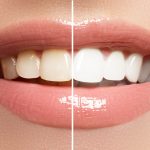The Importance of Regular Check-Ups
In spite of their importance in preventing dental and general health problems, many of us tend to keep on putting off visiting our local Surrey dentist until the damage is done. Somehow we seem to put it lower down on the list of priorities when it comes to time or how we want to spend our cash at any given point.
Often, it’s only when the excruciating pain of a broken tooth or large cavity rears its head that we finally rush to the dentist for relief. Yet the pain was probably unnecessary. We could well have avoided it if we had just kept to the schedule of having a regular check-up every six months, at best, but certainly no longer than a year apart.
Preventing serious health issues
It’s not only the risk of pain, that’s an issue, though. Without regular dental check-ups, problems like gum disease and oral cancer can develop without being noticed and cause serious general health issues down the line. Gum disease has been found to have a tie to issues like heart problems and strokes, and can cause damage to the bones that support your teeth and gums with serious health consequences. Your dentist will be on the alert for any signs of trouble, and take any action needed to prevent further damage.
Oral cancer, which affects the throat, tongue and mouth area can prove fatal if not caught early. Statistics have put the fatality rate for this cancer at one death out of every 6 people diagnosed and that’s not a chance worth taking.
Visiting your dentist on a regular basis means that your dental history is kept up to date, enabling your dentist to keep an eye on any new developments and catch problems early on. You can also point out any changes you have noticed yourself during your normal oral hygiene routine, in case any are causes for alarm.
Watching out for cavities
Dental check-ups also provide a chance for your dentist to watch for new cavities and decide at what stage they will need filling. He or she will also check for old ones that are breaking down, which some fillings do after about 8 to 10 years. You might be lucky and have yours last a lot longer, but you won’t always know when they have started breaking down until it’s too late. The breakdown can cause gaps to form under the old filling where bacteria can gather and cause damage, sometimes leading to the tooth breaking off completely. This would call for costly dental work, in the form of a crown or implant.
Preventative treatment
Where necessary your dentist will recommend treatments such as scaling if there is evidence of plaque and tartar build-up, and might also apply a fissure sealant or use topical fluoride as preventative measures against any problems developing.
For the best form of preventative oral care, the dentist will advise you on any adjustments you need to make to your regular oral hygiene routine or dietary habits in order to ensure your teeth, gums and mouth remain healthy.





